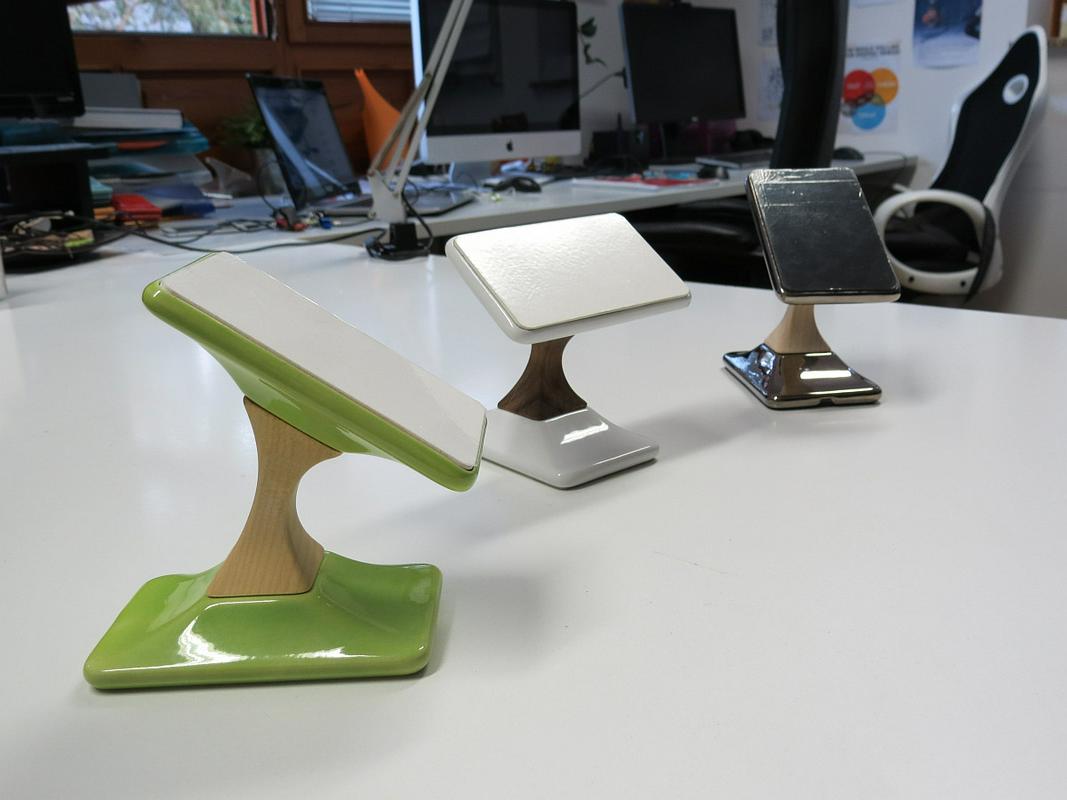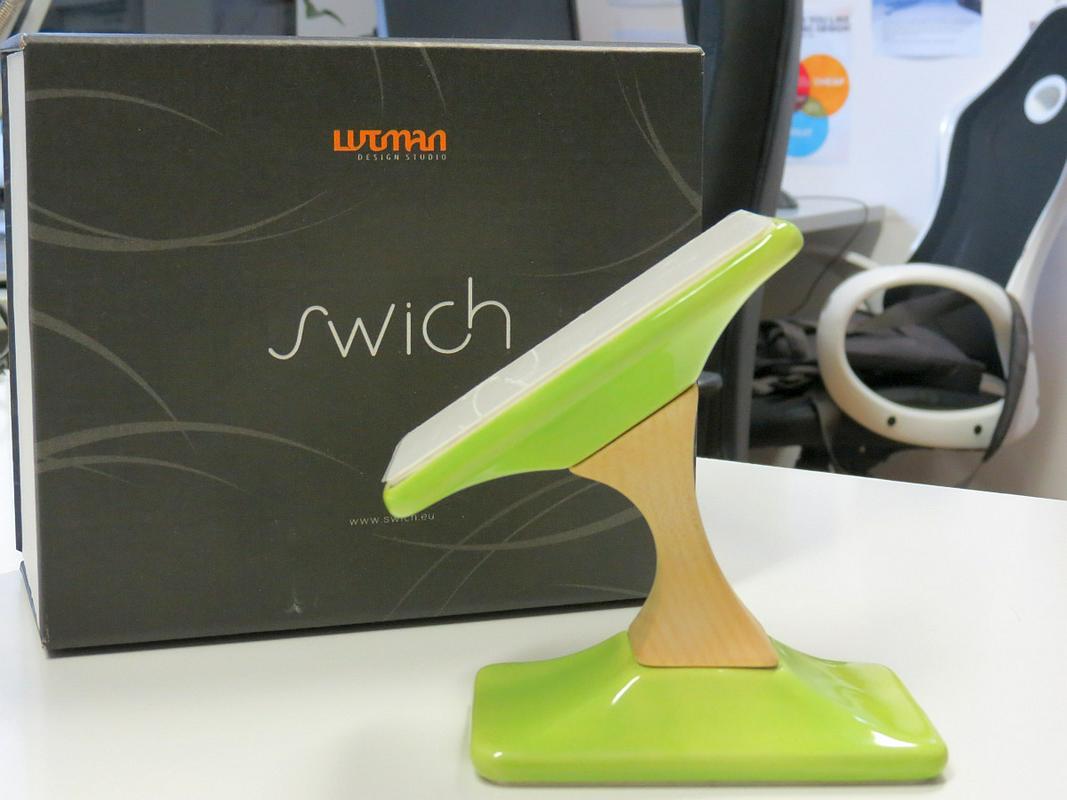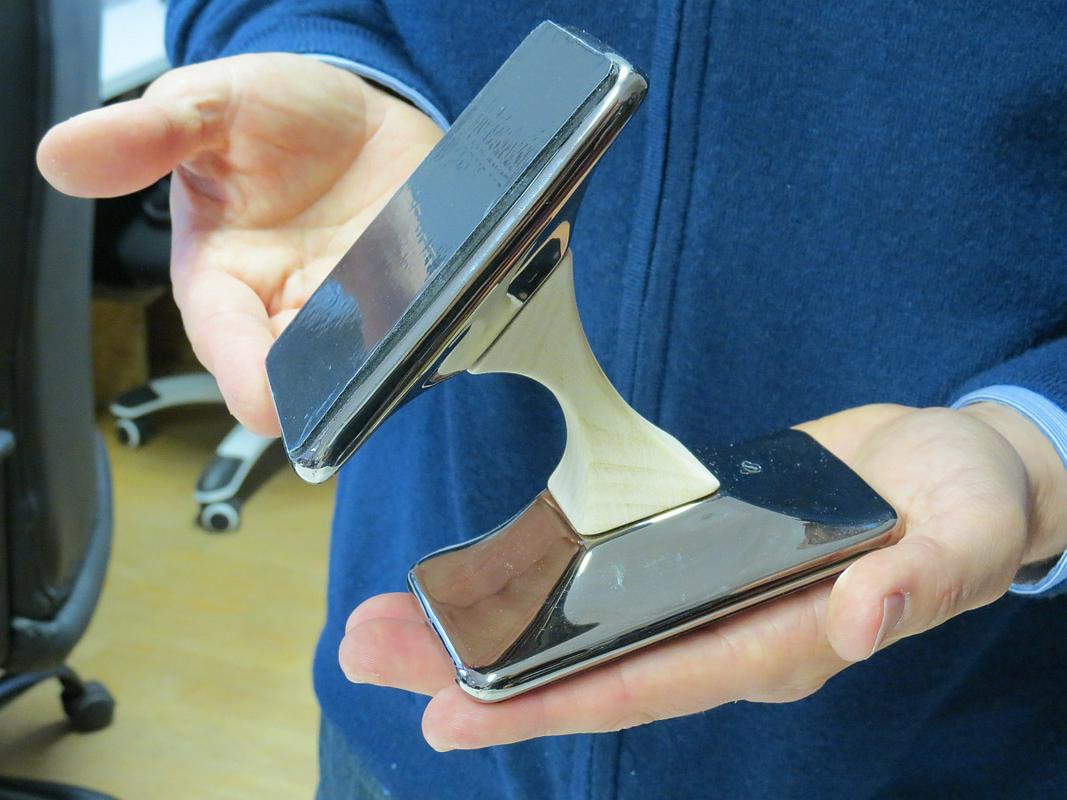Presently we have orders for approximately 280 to 300 chargers; initially we have expected orders for 500 units.

Once you draw the line, Kickstarter helps with promotion, and in obtaining orders.

It doesn't help that I have never been late with any payment, and that I pay all ...

In Italy they have a number of hidden taxes which are not considered in comparisons of tax burdens. E.g. tax on shadow, or entrance from the road ...
Boris had decided to test his product through Kickstarter, just as many other small companies in the beginning of their operation. Kickstarter and similar platforms for mass financing lately present a good option for testing the depth of the market for new products, and for evaluation of the direct response of the users. A lot of them fail, but quite a lot succeed. Swich was one of the products that succeeded in convincing buyers. Boris Lutman, its creator, explained to MMC how they managed to succeed.
The intention of the design studio was to collect 25,000 dollars. The aim was reached in one week only, Lutman says. At the end of the campaign Swich managed to collect orders for more than 45,000 dollars. "The responses we got were very positive, but I liked the best the response in one of the articles in which it was written that it was a charger you should be proud to have on your desk. And that's actually what we ourselves wanted to say," he explained.He got the idea for Swich a year and a half ago, when researching the market for product design. The technology of wireless charging used in his product is not new, Lutman confesses, as it has been developed in 2009. But they added functionality other similar products lack.
Problems with suppliers
Swich is a wireless charger distinguished by good industrial design, and chosen materials. The base is made of a ceramic. Working of ceramics requires precision, as a material it is not precise, therefore quite some time was spent on searching a suitable contractor. They have found the suitable manufacturer in Italy. For now only black and white colour are available, but that's about to change.The platform is made either of waxed American walnut, or maple wood. They had to put quite a lot of effort in finding a craftsman in Slovenia with suitable equipment to manufacture the platform. They have found one in Ajdovščina. Electronics is made in Slovenia as well, in Maribor.
Although it somewhat increases the price, they chose Slovenian manufacturer, and decided against Asia. "There are no problems in communication, no customs, and you can drop by any time and check the matters," he lists the reasons for the decision. The charger is equipped with a microsuction structure holding the appliance in position, and allowing its use also while charging. For the comfort the charger is inclined by 45 degrees, and the it can be rotated by 180°.
The product seems rather simple, but Lutman claims the most difficult part of the work was finding suppliers, which had been considered already in the first phase. He believes the suppliers are crucial, and in his opinion they need to have a vision, and patience to develop together with their client.
The orders are coming, and so is the money
For now they are satisfied with the number of orders, Lutman says, as besides the orders through Kickstarter, some hotels from the USA and Great Britain started showing their interest in Swich, and it is being considered suitable for business gifts as well. "Presently we have orders for 280 to 300 pieces, and as our initial estimation was 500 pieces, we came quite close to our goal." Which is a quite good result for a small Slovenian company. But, although that they had doubled their expectation for mass financing, that will not have great impact on the financial situation of the company.
Although they will get some money from Kickstarter, Lutman warns that the platform takes its share, i.e. approximately 5%. Then the distributors take their share, e.g. Amazon, which amount from 3 to 5%. Then there is the cost of conversion from dollars to euros. But the fact is that Kickstarter helped them a lot at accessing the distribution network. Yet: "Once you draw the line, Kickstarter helps with promotion, and in obtaining orders."
When asked whether they had considered the fact that more than one half of the projects from Kickstarter fail, he laughs and says they chose to ignore that. In future they intend to fulfil the orders they have already received, and establish a distribution network. They also intend to introduce new materials (they are thinking of using Murano glass to increase exclusivity of their product), new colours, and electronic prototypes for their chargers. They would like to introduce other products to complement Swich charger and turn it into an eco-system.
Banks go from one extreme into another
We ended our conversation by touching the business environment in Slovenia. His first answer was quite surprising: he claims it is very positive. "I can say that because I am familiar with the situation in Italy, and the difference is enormous," he says. He considers workshops and support to young entrepreneurs as very positive, including the awards by technogical parks. "The problem, however, is the money," he claims.
Therefore he believes, although he is not in favour of too much intervention by the state, that the state should help the small industry by subventions, or another kind of help, while banks should change their philosophy and allocate a part of their operation to riskier investments.
"We Slovenians are unbelievable; we are a nation of innovators, and Slovenian economy should be built on such small companies. Banks should not be afraid of risking a little, and the environment should be more inclined to such a model."
Presently we have orders for approximately 280 to 300 chargers; initially we have expected orders for 500 units.
Once you draw the line, Kickstarter helps with promotion, and in obtaining orders.
It doesn't help that I have never been late with any payment, and that I pay all ...
In Italy they have a number of hidden taxes which are not considered in comparisons of tax burdens. E.g. tax on shadow, or entrance from the road ...


































































